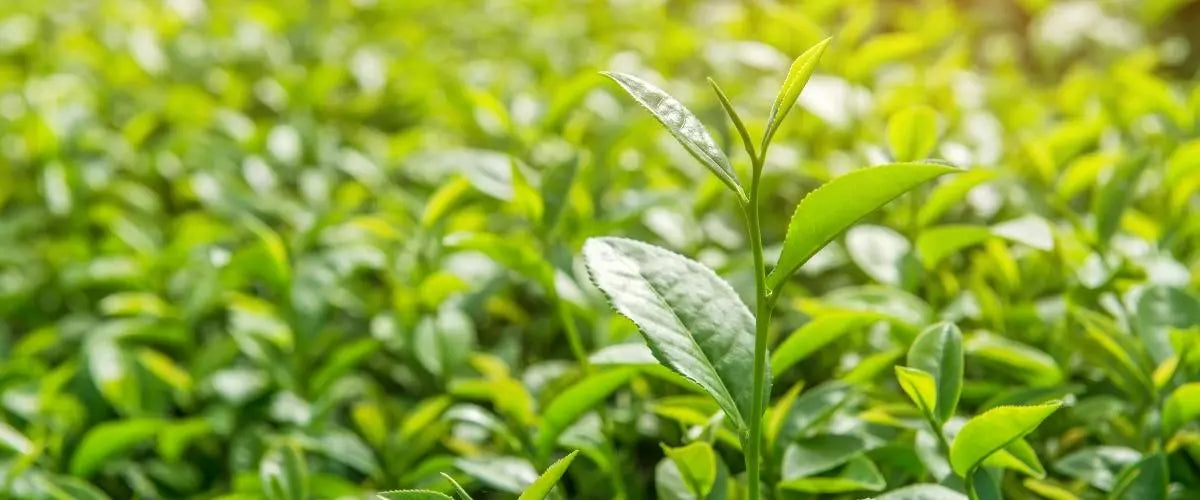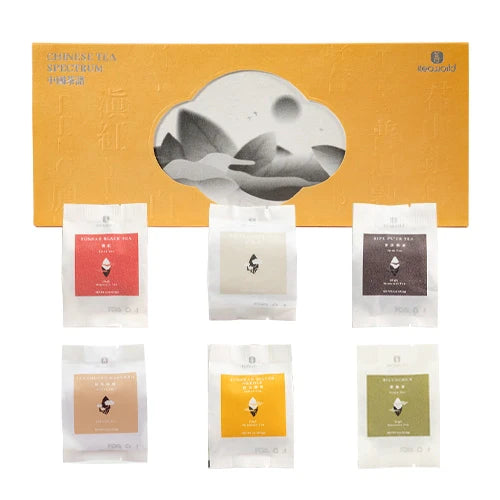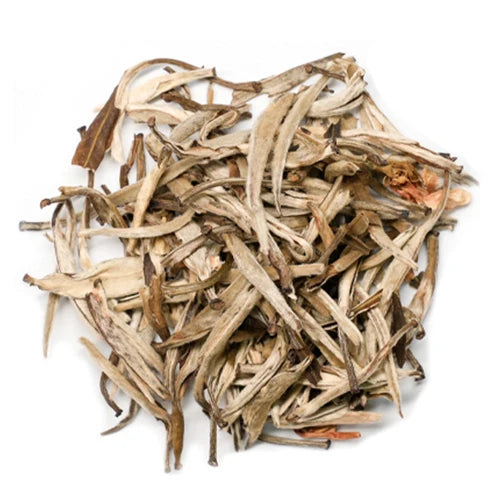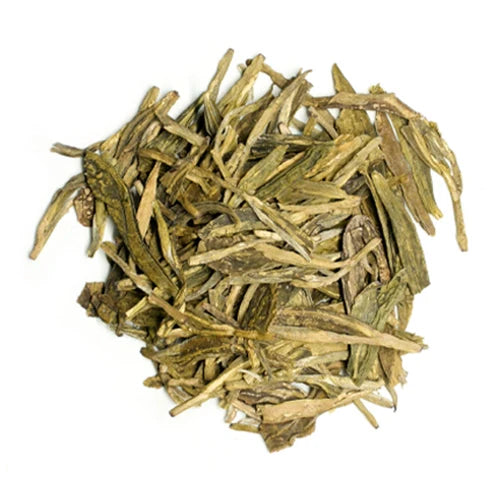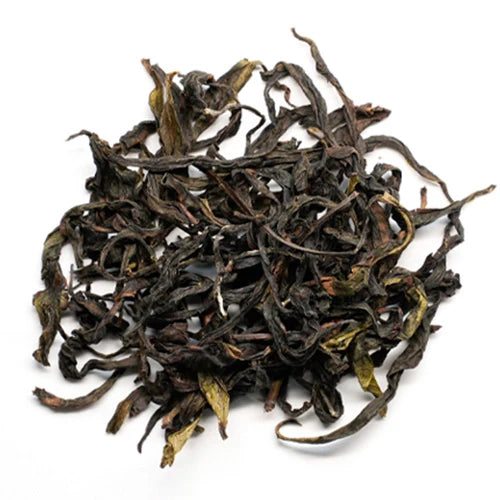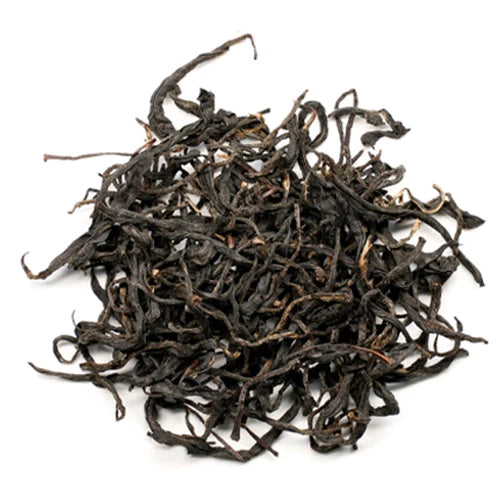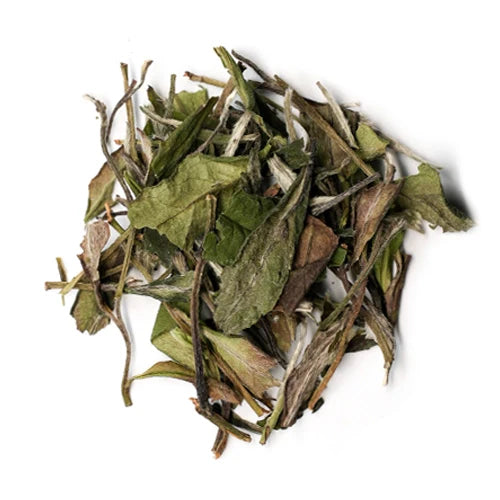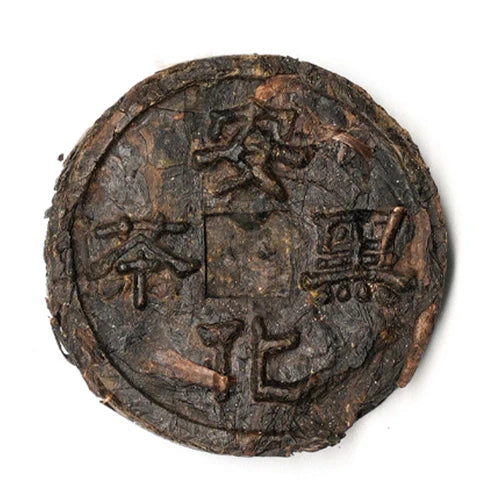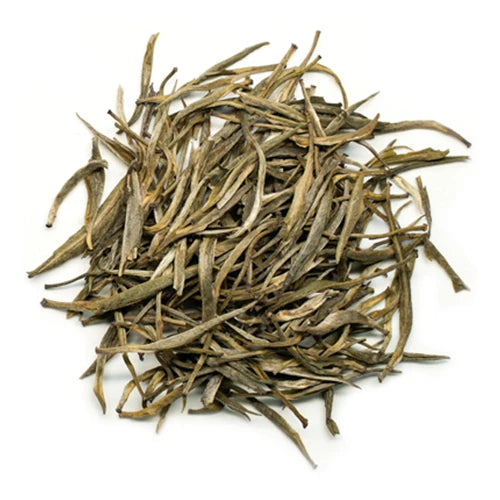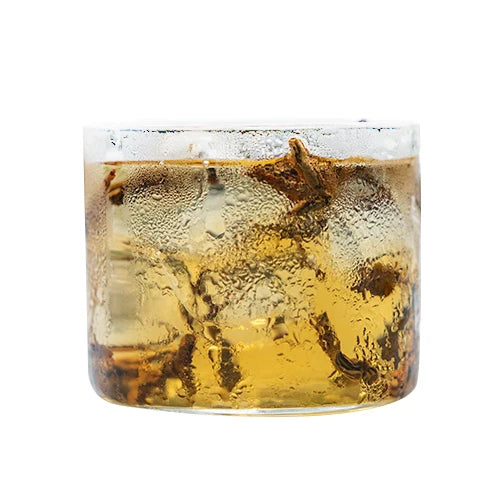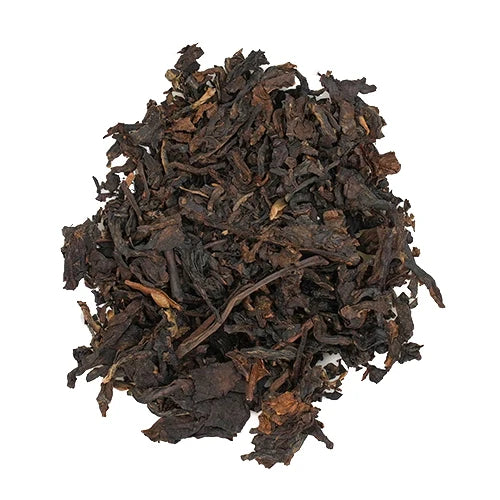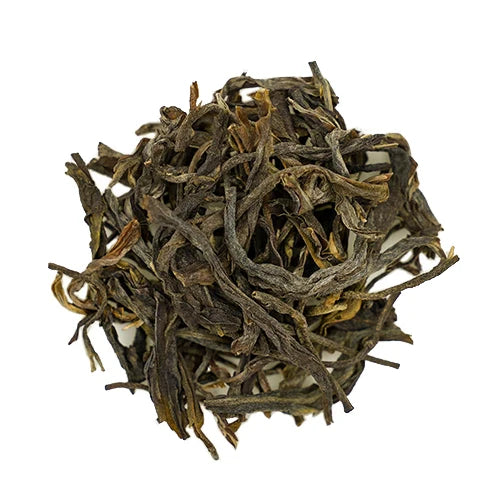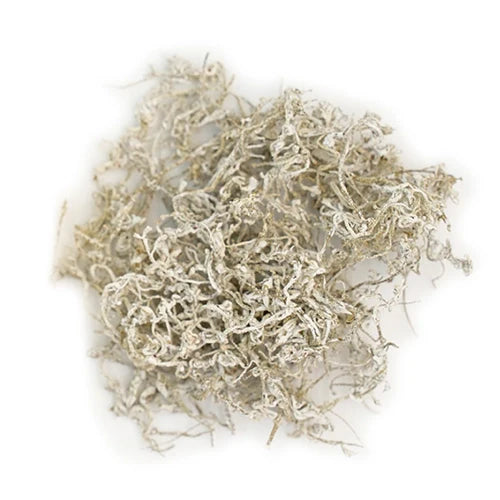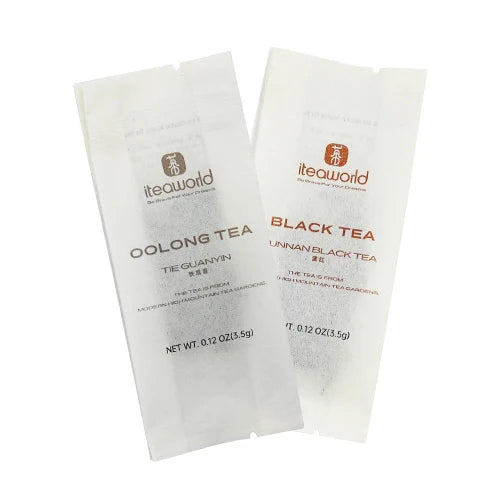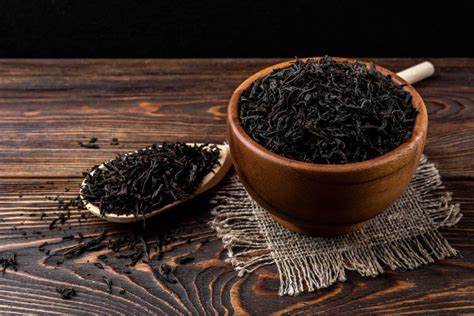
Черный чай содержит мало FODMAP? Изучаем его содержание FODMAP
FODMAP — это короткоцепочечные углеводы, которые плохо всасываются в тонком кишечнике и могут вызывать проблемы с пищеварением у некоторых людей. FODMAP означает ферментируемые олигосахариды, дисахариды, моносахариды и полиолы. Для людей с синдромом раздраженного кишечника (СРК) или другими расстройствами пищеварения соблюдение диеты с низким содержанием FODMAP может помочь уменьшить симптомы, ограничив потребление этих трудноусвояемых углеводов.
В данной статье предпринята попытка выяснить, считается ли черный чай продуктом с низким содержанием FODMAP, путем изучения его состава и влияния на пищеварение.
Черный чай — что это?
Черный чай отличается от зеленого и белого чая тем, что в процессе производства он проходит процесс ферментации. Сначала свежие чайные листья завяливаются, что позволяет их ферментам окислиться и запускает химические процессы, отвечающие за характерный вкус черного чая.

Затем увядшие листья переходят в стадию ферментации. Здесь их клеточные стенки разрываются под действием контролируемой микробной активности, что позволяет полифенолам и другим соединениям взаимодействовать. Кислород поступает, когда листья регулярно переворачивают и скручивают. Ферментация обычно длится 1-2 дня.
Правильно ферментированные листья будут полностью черного цвета и солодового вкуса. Затем их сушат, чтобы остановить ферментацию в желаемой точке. Конечный результат — листовой черный чай , полный сложных спелых, землистых и иногда дымных вкусовых профилей, которых не хватает зеленым или белым чаям.
С точки зрения питания, черный чай содержит антиоксиданты, называемые полифенолами, которые могут защищать от повреждения клеток. К ним относятся флавоноиды, такие как галлат эпигаллокатехина, который обладает противовоспалительным действием. Черный чай также является источником марганца и витамина К, которые важны для здоровья костей.
Кофеин присутствует примерно в количестве половины от уровня кофе на чашку, обеспечивая умственную активность без столь сильного стимулирующего эффекта. Содержание кофеина может варьироваться в зависимости от размера листьев, времени сбора урожая и процесса производства. В целом, черный чай обеспечивает ряд биоактивных соединений в напитке среднего уровня.
В черном чае мало FODMAP?
Согласно имеющимся исследованиям и базам данных по содержанию FODMAP, черный чай обычно считается продуктом с низким содержанием FODMAP. База данных 2019 года от Университета Монаша, ведущей исследовательской группы по этой теме, относит черный чай к зеленым или безопасным для диеты с низким содержанием FODMAP.
Хотя в листьях черного чая присутствуют небольшие количества натуральных сахаров, таких как маннит, процесс ферментации, по-видимому, значительно снижает их содержание FODMAP. Некоторые исследования показали, что зрелые чаи содержат минимальные или неопределяемые уровни олигосахаридов после окисления и сушки.
Однако исследования, напрямую анализирующие уровни FODMAP в черном чае, ограничены. Многие прошлые исследования были сосредоточены более широко на профилях полифенолов и кофеина в чае. Все еще необходимы более специализированные работы, чтобы точно определить, сколько каждого подтипа FODMAP может содержать черный чай.

Что касается нашего пробника черного чая , он считается безопасным для употребления. Наш пробник включает в себя коллекцию лучших черных чаев, полученных из разных регионов и известных своими отличительными вкусами и характеристиками. С нашим пробником черного чая вы можете исследовать множество высококачественных черных чаев. Наслаждайтесь богатыми и разнообразными вкусами черного чая с уверенностью!
Далее мы дадим подробное объяснение FODMAP.
Что такое FODMAP?
FODMAP — это группа короткоцепочечных углеводов, которые имеют общую черту: они плохо всасываются в тонком кишечнике. Это означает, что они могут попасть в толстый кишечник непереваренными, где вступают в контакт с желудочно-кишечными бактериями. Ферментация FODMAP этими кишечными микробами может привести к образованию газов, вздутию живота и дискомфорту в животе у людей, чувствительных к FODMAP.
Основные типы FODMAP включают фруктозу, лактозу, фруктаны, галактоолигосахариды и полиолы. Фруктоза в изобилии содержится в таких фруктах, как яблоки, груши и косточковые. Лактоза присутствует в молочных продуктах. Фруктаны широко представлены в пшенице и чесноке. Галактоолигосахариды присутствуют в бобовых. Полиолы используются в качестве сахарных спиртов в низкокалорийных обработанных пищевых продуктах. Ограничивая потребление продуктов с высоким содержанием FODMAP, можно потенциально уменьшить симптомы расстройства пищеварения.
Понимание диеты с низким содержанием FODMAP
Диета с низким содержанием FODMAP включает две основные фазы — исключение и повторное введение.
Фаза 1: Устранение
В фазе исключения продукты с высоким содержанием FODMAP удаляются из рациона на 2–6 недель, чтобы уменьшить симптомы расстройства пищеварения. Обычные продукты, которые исключаются, включают яблоки, груши, брокколи, цветную капусту, лук, чеснок, пшеницу, молочные продукты и кукурузный сироп с высоким содержанием фруктозы.
Фаза 2: Реинтродукция
После завершения фазы исключения начинается фаза повторного введения. Отдельные FODMAP медленно вводятся повторно в течение нескольких недель, чтобы помочь определить личные уровни переносимости. Одна группа FODMAP тестируется за раз, повторно вводя небольшое количество и отслеживая любые возникающие симптомы. Это позволяет настраивать руководство по тому, какие FODMAP можно безопасно употреблять.
Соблюдение диеты с низким содержанием FODMAP показало, что она значительно снижает симптомы синдрома раздраженного кишечника (СРК) в клинических испытаниях. Устраняя провоцирующие факторы, она направлена на минимизацию газов, вздутия живота, спазмов и изменений в дефекации. Соблюдение диеты также помогает определить, что конкретно вызывает дискомфорт.

Кроме того, это повышает осведомленность о пищевых привычках и их влиянии на здоровье пищеварительной системы. Ведение дневника симптомов в течение всего периода реинтродукции позволяет установить связь между пищей и симптомами. Затем с помощью диетолога можно составить сбалансированную индивидуальную диету. Общие преимущества включают улучшение качества жизни в результате получения контроля над ранее беспокоящим заболеванием пищеварительной системы.
Чем полезна диета с низким содержанием FODMAP?
- Облегчение симптомов: Исследования показывают, что соблюдение диеты с низким содержанием FODMAP может эффективно уменьшить такие симптомы, как вздутие живота, боли в животе и нарушение стула у людей с синдромом раздраженного кишечника (СРК) и другими функциональными желудочно-кишечными расстройствами. Исключая или сокращая потребление продуктов, богатых FODMAP, люди могут почувствовать облегчение этих неприятных симптомов, что приведет к улучшению общего самочувствия.
- Улучшение понимания здоровья пищеварительной системы: принятие диеты с низким содержанием FODMAP подразумевает ведение дневника питания и симптомов для отслеживания воздействия определенных продуктов на организм. Этот процесс помогает людям лучше понять свое здоровье пищеварительной системы, определить продукты-триггеры и принимать обоснованные решения относительно своего рациона и образа жизни.
- Сбалансированный подход к питанию: хотя диета с низким содержанием FODMAP ограничивает определенные продукты с высоким содержанием FODMAP, она по-прежнему допускает широкий спектр питательных вариантов. Работа с дипломированным диетологом может помочь людям включить ряд продуктов с низким содержанием FODMAP, которые обеспечивают необходимые питательные вещества, витамины и минералы. Это гарантирует удовлетворение потребностей в питании при контроле потребления FODMAP.
- Потенциал для более приятного чаепития: листовые чаи , такие как те, что содержатся в нашем Black Tea Sampler, можно включать в диету с низким содержанием FODMAP. Эти чаи предлагают богатый и разнообразный спектр вкусов, не содержа высокого уровня FODMAP. Исследуя различные сорта листовых чаев, люди могут улучшить свои чайные впечатления и насладиться ароматическими и успокаивающими качествами чая, соблюдая при этом свои диетические ограничения.
Включение черного чая в диету с низким содержанием FODMAP
При выборе черного чая для образа жизни с низким содержанием FODMAP, определенные варианты могут помочь снизить возможную нагрузку FODMAP. Лучше всего подходят простые, односортовые чаи без добавок . Ароматизированные или смешанные чаи, содержащие сухофрукты или специи, вносят ненужные и трудно поддающиеся количественной оценке FODMAP.
Методы заваривания
При заваривании более короткое время настаивания и более низкая температура воды могут ограничить извлечение FODMAP. В качестве ориентира рекомендуется 1-2 минуты при 175-185°F. Ограничение количества чайных листьев и использование меньшего количества воды на порцию также помогает сократить потребление. Переваренный или сильно подслащенный чай также увеличивает потребление углеводов.

Добавление вкуса без увеличения содержания FODMAP
Если вы предпочитаете ароматизированный чай, есть варианты с низким содержанием FODMAP, такие как натуральные ароматизаторы , которые могут улучшить ваши ощущения от чая без увеличения содержания FODMAP. Вот несколько предложений:
- Лимон: Добавление ломтика лимона в черный чай может придать ему освежающий цитрусовый вкус. Лимон содержит мало FODMAP и может стать отличным дополнением к вашему чаю.
- Свежий имбирь: Если вам нравится нотка пряности, попробуйте добавить немного свежего имбиря в черный чай. Имбирь считается низкокалорийным и может придать согревающий и бодрящий вкус.
- Корица: Щепотка корицы может добавить немного тепла и сладости вашему черному чаю. Корица содержит мало FODMAP и может обеспечить уютный и ароматный вкус.
При добавлении этих ароматизаторов важно помнить о размерах порций. Чрезмерное количество ароматизаторов может ввести дополнительные FODMAP в ваш чай, что может вызвать симптомы.
Соблюдение рекомендаций по приготовлению, разработанных специально для людей с синдромом раздраженного кишечника или с низкими потребностями в FODMAP, может обеспечить душевное спокойствие. Ресурсы из аккредитованных источников, таких как Университет Монаша, предлагают рекомендуемые размеры порций и инструкции по завариванию. Начиная с половины стандартной чашки, съедаемой во время еды, можно также смягчить потенциальные эффекты.
Важно отметить, что, как и в случае с любой диетой, существуют различия между людьми. Хотя черный чай может не вызывать проблем у большинства людей, некоторые люди могут обнаружить, что их переносимость ниже. Тщательный мониторинг симптомов и проверка у диетолога являются разумными мерами предосторожности. Регулировка потребления в сторону увеличения или уменьшения в зависимости от того, как именно реагирует ваш организм, является самым безопасным подходом. С осторожностью и руководством черный чай обычно можно включать тем, кто хочет его вкуса и пользы для здоровья.
Какие чаи проходят тест на низкий уровень FODMAP, кроме черного чая?
Содержит ли зеленый чай низкий уровень FODMAP?
Зеленый чай получает положительное одобрение от системы Монаша, что делает его безопасным выбором для диеты с низким содержанием FODMAP. Некоторые виды зеленого чая , которыми вы можете с уверенностью наслаждаться, даже в фазе элиминации, включают наш китайский жасмин и китайский порох.
Например, наш Green Tea Sampler считается безопасным для употребления. Наш пробник включает в себя коллекцию лучших китайских листовых зеленых чаев, демонстрируя лучшие сорта из региона. Так что вы можете наслаждаться им без беспокойства!

Имеет ли чай улун низкий уровень FODMAP?
Исследования показывают, что у большинства людей уровень FODMAP, как правило, низкий.
Чай улун, как и черный чай, проходит процесс завяливания и частичной ферментации во время производства. Это окисление уменьшает количество природных фруктозы, глюкозы, сахарозы и FODMAP-сахаров, присутствующих в свежих чайных листьях.
В приложении Университета Монаша за 2019 год улун указан как зеленый, что означает, что он содержит олигосахариды (тип FODMAP) в количествах, которые обычно не влияют на симптомы. Ограниченные исследования также показали, что в улунском чае после обработки содержится незначительное количество фруктана.
В iTeaworld мы предлагаем несколько видов листового чая улун , которые вы можете попробовать, соблюдая диету с низким содержанием FODMAP.
Содержит ли белый чай низкий уровень FODMAP?
Да, белый чай можно безопасно употреблять во время фазы элиминации диеты с низким содержанием FODMAP или в любое другое время. Просто заваривайте его в течение соответствующего времени и наслаждайтесь! Однако, если вы обычно подслащиваете свой белый чай медом, важно отметить, что мед не является низкоуглеводным. Возможно, вам придется внести изменения в этом отношении. К счастью, белый чай сам по себе немного сладкий. В качестве альтернативы вы можете попробовать добавить немного лимона, так как он хорошо сочетается с белым чаем и является низкоуглеводным. Как всегда, тростниковый сахар безопасен для употребления людьми, соблюдающими низкоуглеводную диету.

Содержит ли имбирный чай низкий уровень FODMAP?
Имбирь считается продуктом с низким содержанием FODMAP и не содержит определяемых уровней FODMAP, согласно данным Университета Монаша. Помимо того, что он благоприятен для FODMAP, имбирь давно известен своими потенциальными преимуществами в поддержке пищеварения, что делает его отличным выбором для людей с проблемами пищеварения.
Что касается Ginger Sweet Peach, то кубики манго, яблока и персика, используемые в смеси, присутствуют в меньших количествах, чем те, которые считаются высокими в FODMAP. Что касается Citrus Detox, поскольку некоторые из его ингредиентов не были проверены на содержание FODMAP, рекомендуется подождать, пока не появится больше информации, прежде чем включать его в свой рацион.
Имеет ли чай матча низкий уровень FODMAP?
На момент публикации матча специально не тестировался на содержание FODMAP. В то время как зеленый чай был одобрен для диеты с низким содержанием FODMAP, матчя — это немного другой случай. Матча — это, по сути, мелко измельченные листья зеленого чая, которые потребляются целиком, а не завариваются и удаляются. Это означает, что содержание FODMAP в матче может отличаться от обычного зеленого чая.
Чтобы перестраховаться, рекомендуется подождать, пока вы не завершите фазу элиминации диеты с низким содержанием FODMAP, или проконсультироваться с вашим зарегистрированным диетологом перед употреблением чая матча. Они могут предоставить персонализированные рекомендации, основанные на ваших конкретных диетических потребностях и переносимости FODMAP.
Однако такие факторы, как сорт чая, размер листа, условия роста, процесс производства и методы заваривания, также могут влиять на конечное значение FODMAP напитка. Всегда следует учитывать индивидуальную переносимость, поскольку микробиом кишечника у разных людей разный.
Подводя итог, текущие исследования показывают, что черный чай, чай улун и другие традиционно обработанные чаи, как правило, содержат мало FODMAP для большинства людей. Однако всегда следует учитывать индивидуальную переносимость. Консультация с диетологом может помочь персонализировать потребление чая как часть здорового образа жизни с низким содержанием FODMAP.

Ограниченная по времени распродажа рождественского чая
Мы предлагаем отличные предложения, чтобы помочь вам насладиться чаем и распространить праздничное настроение. С сегодняшнего дня и до 17 декабря используйте код «XMAS50», чтобы купить один и получить один бесплатно на некоторые пробники чая. Просто купите наш новый пробник чая Улун и получите еще один пробник по вашему выбору бесплатно.
Купите рождественский чай прямо сейчас! >>>
В качестве альтернативы используйте код «XMAS», чтобы получить скидку 20% на весь наш ассортимент изысканных листовых чаев. Упакуйте несколько уютных чайных подарков или угощений для себя в этот праздничный сезон. Побалуйте себя роскошными вкусами, экономя на покупке.






